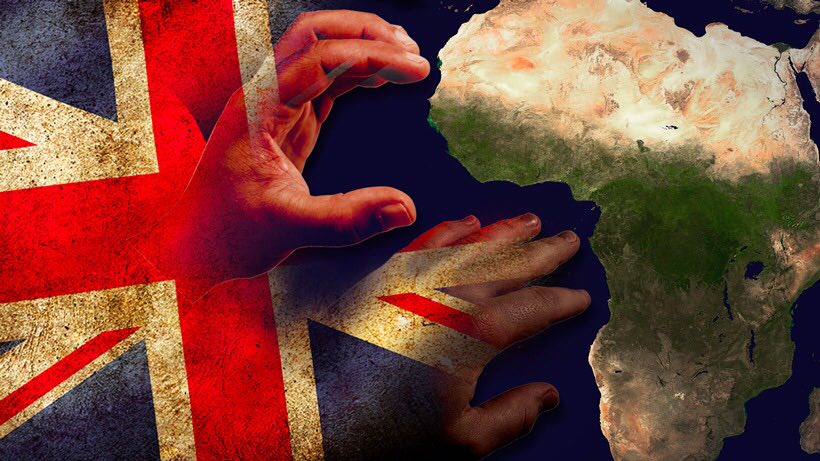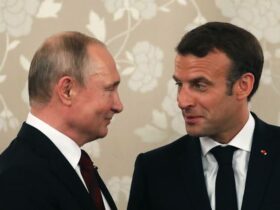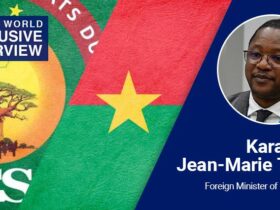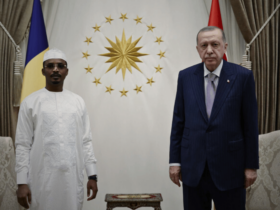Britain’s Prime Minister Theresa May made a tour of Africa where she visited South Africa, Nigeria and Kenya.
On August 28, she stated that London had concluded its agreements with several African countries, and that, following Brexit, Britain will initiate a large trade agreement with six countries in Africa, with similar to the format to agreements in the European Union.
Economic Interests
May said that she wants to see Britain as the largest investor in Africa, and even surpass the US in economic relations on the continent. According to her, part of the budget will go to the development of infrastructure, while part would go to combat poverty and provide jobs.
“Today I am committing that our development spending will not only combat extreme poverty, but at the same time tackle global challenges and support our own national interest” May said.
According to preliminary data, the British are planning to sign an agreement with six African countries(all members of the South African Customs Union) – Botswana, Lesotho, Namibia, South Africa and Swaziland, Mozambique. The initial investments will be around 4 billion pounds.
The prime minister also promised that London would assist private companies in opening up their business in Africa.
Will Africa again be Colonized?
What is taking place today could be described as a new “battle for Africa”, which includes economic, political, proxy and (most importantly) open military influence.
Africa has become interesting to many Western countries – the USA, France, Britain, Germany, as well as countries of other spheres of influence such as Russia and China. In recent months, many world leaders made their own “tour” in the region, each concluding various agreements with African actors. In addition, the game has involved Japan, India, Brazil, and some countries in the Persian Gulf.
Africa is interesting primarily due to its resources and its potential for investment projects – but this is only the top of the iceberg. Africa is becoming a platform for a serious geopolitical confrontation.
For example, in South Africa, following the recent coup, the new president is controlled by Cyril Ramafosa, a businessman associated with transnational corporations (McDonald’s, The Coca-Cola Company, etc.). Obviously, this type of person is a convenient guide for ensuring globalist interests. This is one of the illustrations of foreign interference in African affairs, in this case manufactured to meet American interests.
In summary, there are three main blocks will be fighting for influence in the region: the USA, China and Russia. The fourth block (Europeans, including France and Britain) is still in question, which is why the leaders of the EU countries active in trying, quite literally, to take their place under the sun.
China
One of the main leaders of international trade in the region today is China. By approximate estimates, for the period from 2000-2015, The PRC invested nearly $ 100 billion in various African countries. One of the largest projects it undertook was the construction of the Addis Ababa (Ethiopia) railroad – Djibouti (commissioned on January 1, 2018). The rail-system was mainly built with Chinese loans using local labor.
As of 2017, the trade turnover between Beijing and African states rose to $ 170 billion. In the State Council of the People’s Republic of China today it was reported that about 30 thousand km of new roads are planned, and thanks to the increased capacity of the ports (by 85 million tons per year), water trade will be simplified. At the same time, China is paying special attention to water purification in Africa. Beijing promises to create around 900 thousand new jobs through future cooperation.
These and other pressing issues will be discussed at the September Beijing Forum of China-Africa cooperation.
Naturally, these friendly relations have inspired horror among Western leaders, especially the historical colonialists.
Russia
Russia is also active in Africa, with a slightly greater deviation in terms of military cooperation. In March, Russian Foreign Minister Sergei Lavrov held a series of talks in Angola, Namibia, Mozambique, Zimbabwe and Ethiopia.
Russia is interested in trading grain, fertilizers, engineering products, weapons and technical details for the continent’s wealth of agricultural products. Like China, Russia wants to invest in large infrastructure projects (HPPs, light industry plants, refineries, roads).
More and more African countries (especially those tired of being controlled by France) are signing cooperation agreements with Russia. Botswana is the most recent example.
The United States
Western publications tend to claim that under both Barack Obama and Donald Trump, Africa has been less interesting for Washington than what is happening in the Middle East (to the point that some key vacancies in the African Bureau of the State Department are still free). Thus, while the US is advancing its interests in the continent, it is losing to other players, especially China.
Nonetheless, it is worth recalling that there are US military forces located in Djibouti, and that big name politicians from the United States regularly “monitor” the situation (for example, US Secretary of State Rex Tillerson’s tour, which promoted American interests and attacked Russian and Chinese strategies in Africa). It is possible to cite numerous examples of American interference in the domestic political processes on the African continent, including coups and election interference (such as in the aforementioned Republic of South Africa, or the recent events in Zimbabwe).
As for infrastructure projects, Washington is also making plans, albeit somewhat too late. Donald Trump recently met with Kenyatta, and announced work on “a major infrastructure project, a huge road, the construction of which will set many records.”
The US might be lagging behind, but they have not yet quit the game.
The Battle for Africa
The question then arises: will Africa become once again a colony, or will it be able to attain sovereignty and become one of the centers of a multipolar world? For now, most African nations are not strong enough economically (state crediting, the rise of the national debt), militarily (the majority do not have sufficient military equipment, and if they do it is either controlled by a western country or a dangerous black market) or politically (the threat of coup and uncontainable violence is an issue for almost all African states).
Djibouti is an illustration of a state in which multiple foreign actors are present. The country hosts an almost record number of foreign military bases (4 French, 2 American, Italian, Japanese, Chinese, as well as Germany and Spanish presence). Saudi Arabia plans to construct a base in the country, and Turkey has now also expressed interest in doing the same. While there has been talk of Moscow’s presence, no official announcement has been made. There are already Saudi bases in Eritrea and Somaliland, and Turkish forces in Somalia. In the Sahel, regular “antiterrorist operations” of Western countries take place.
Experts predict a new battle for Africa – only, unlike the division of 1881-1914, with new political realities: if Africa gains strength, it will become an independent pole in a multipolar world. If the governments of Africa want to get back on their feet, they would be wise to cooperate with Russia and the East rather than the former colonialist Western powers. Instead of just subsisting on subsidies, Africa needs to be built up to reach its own potential, and become a full-fledged ally of its partners.
Africa today is faced with a serious problem – there is no clear strategy for the development of the region as an independent player. Recently, on the occasion of the 50th anniversary of its existence, the African Union (AU) presented an agenda for the continent called “Program-2063”, which outlined a possible vision of a “prosperous and united Africa”. While not an immediate reality, in the long term such a plan is possible – especially if the continent develops powerful military capabilities to protect its sovereignty while providing jobs that will reduce domestic political tension and reduce issues of criminal militancy.

















Leave a Reply